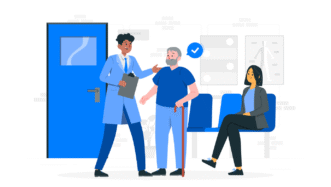LESSON OVERVIEW
In this lesson about the origins of new words in English, students practise their listening skills, figure out the meanings of some newly formed words and eventually create their own new words.
WARM-UP & ORIGINS OF NEW WORDS
The warm-up activity starts with five facts about the English language. Students read five gapped sentences and have to complete them with five given numbers. They move on to a vocabulary task and need to identify the synonyms of eight given words in eight sentences (e.g. absorb – take in, catchy – memorable). This task is followed by a brief discussion about the origins of new words and leads to a video activity. At first, students speculate about how new words enter a language and watch the video for the first time to check if their speculations were correct. Then, they listen again, this time focusing on more detailed information. They analyse a table with some missing facts and complete the gaps.
DISCUSSION
After the listening activity about where new words come from, students read nine sentences including some recent examples of such words (e.g. Brexit, staycation, antivaxxers). They try to explain their meanings and then classify them into five categories – depending on how they were formed (e.g. compounds, blending, borrowing). Encourage them to add more examples which they know and use. Then, students engage in a discussion about the origins of new words and share their preferences and opinions regarding different types of new words in their languages. In the last task, they need to use their imagination and create two new words which fall into one of the categories they learnt about earlier. They come up with their definitions, teach them to the class and guess the categories of their classmates’ new words. Eventually, students choose their favourite newly created words.
WORKSHEETS
Subscribe to unlock these and many other Standalone lesson lesson plans with the Unlimited plan
Subscribe











My students really enjoyed this lesson. Thanks!
Happy to hear that! Thank you
Loved this lesson!
Thanks, we’re happy you enjoyed it!